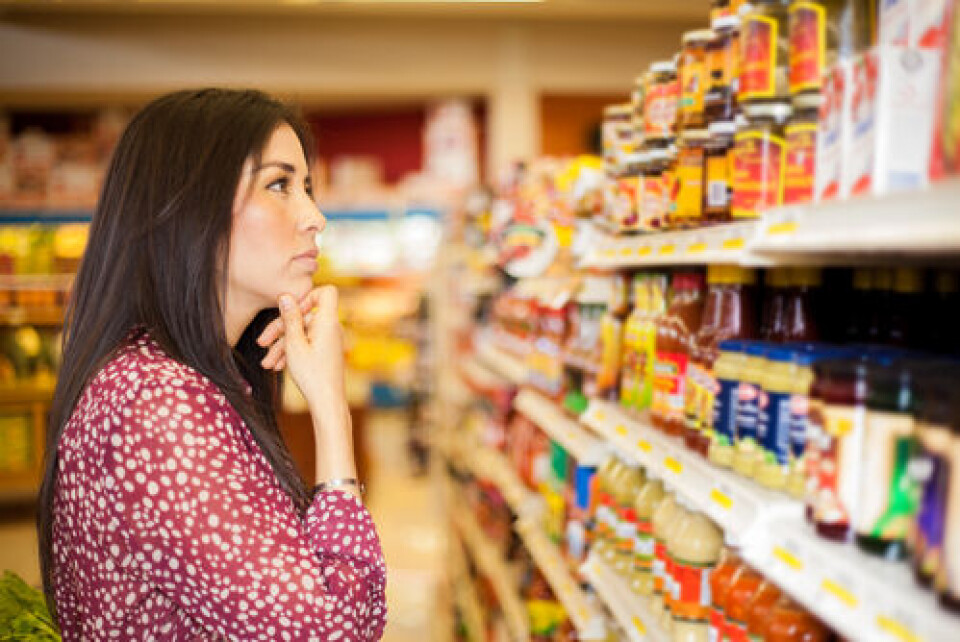-
Sex on work trip classified as workplace accident under French labour law
Classification requires employers inform the inspection du travail of the event within the 12 hours of an incident
-
Scam calls in France more than double in a year
Complaints about unsolicited calls are second only to those about fibre optic internet
-
‘Medical deserts’ major issue in upcoming local elections in France
Access to healthcare is now a more pressing concern than education, mayors say
Nearly 6,000 food products recalled in France over two years
Consumer association calls on government to help producers carry out more tests before items hit the shelves as health officials are too thinly stretched

Nearly 6,000 food and drink products were recalled from supermarkets and other shops in France in the last two years (March 2021 - March 2023), Economy Ministry data shows.
Leading consumer association UFC Que Choisir says that the government should provide more assistance to help producers carry out improved testing before products hit the shelves.
While the 6,000 number is high, around 25% of the recalls were due to the presence of a single chemical - ethylene oxide - that is now subject to a ban in the EU.
Other reasons for the high number include health officials who say they are too thinly stretched to catch all product defaults as well as a general increased visibility of recalls thanks to a recently launched government alert site.
The high number does not necessarily represent a fall in food safety standards, which remain strong but more an issue with the number - and timing - of tests being carried out before products go on sale.
One chemical caused huge recall
One single chemical was the cause of more than 1,500 recalls between March 2021 and April 2022, inflating the 6,000 total.
Ethylene oxide, which is used as a sterilising agent and is a key component of antifreeze, can be used to sterilise certain food products.
Its use in food is banned in the EU, however, certain producers used a legal loophole to allow processed products with a small amount of the chemical to bypass this restriction.
The chemical was used mostly to sterilise E410, a thickener commonly found in processed products across all foods.
There was legal uncertainty regarding recalls for processed products with only one contaminated ingredient, meaning these products remained on the shelves despite the ban.
Then at the end of June 2021, an EU commission closed the loophole, leading to many suppliers and producers having to remove their items from shelves and subsequently issue recalls for products sold.
Industry checks more difficult
Other than the ethylene oxide mass recall, there was no definitive reason behind food recalls.
Looking at where and how food is produced, however, it appears the industry is struggling under the demands to test all foods.
Many producers share parts of their production lines, meaning one issue at a factory can lead to a mass recall across dozens of different brands or shops.
This is what happened during the recent yoghurt recall which affected around 20 brands.
Producers of food are required to do ‘self-checks’ on their production lines but these can differ greatly between producers, said Roland Girerd, General Secretary of Solidaires CCRF union.
For some, it is a simple visual check of products as they are on the production line, which can miss faults or issues that require further action.
Producers must also send their items off to laboratories to be tested. This can take between five and 10 days, however, meaning that some items, especially fresh produce such as meat, are already on supermarket shelves by the time a hazard is identified.
It is also more difficult for health standard officials to complete their tasks; “there are less than 3,000 agents [in France]… and we don't have the means to carry out all our missions,” added Mr Girerd.
Food safety controls in France are high compared to the rest of the world, Stéphanie Chevalier-Lopez, winner of the 2019 Meilleur Ouvrier (best worker) in the category of expertise and advice in food safety, told 20Minutes.
It is impossible to have “zero-risk” production of food but France does not see higher levels of food poisoning than other countries, she added.
However, Foodwatch France, a non-profit organisation that checks food quality in the country, claims the number of mandatory checks that must be carried out are also becoming less numerous.
Increased visibility for recalls
RappelConso, the official alert site for food recalls in France, was launched in April 2021.
The site makes it easier for both consumers and media organisations to find information on recalls as all the information is centralised, and includes content such as lot numbers, points of sale and reasons for recall, among others.
It may seem as if more news is circulating about recalls – which could be true – but it is also because this information is more readily available in all instances whereas it used to be difficult to find information localised only to individual stores and product websites.
As of February 2023, The official RappelConso twitter account has over 73,000 followers.
The increased visibility caused by RappelConso has not been matched by food providers, however.
Information “is not more visible on the shelves of supermarkets, and is often absent on the websites of the brands concerned, their social networks or online sales sites” says Ingrid Kragl, director of information at Foodwatch France.
“There is still a real lack of transparency for consumers,” she added.
Related articles
Over 31 cheeses recalled in France over listeria fears
Supermarket French wine recall over fears of slivers of glass inside
























